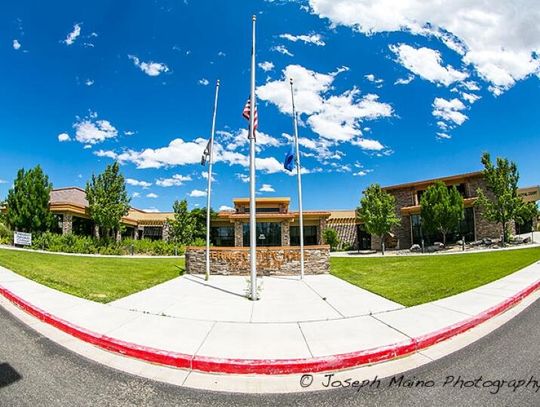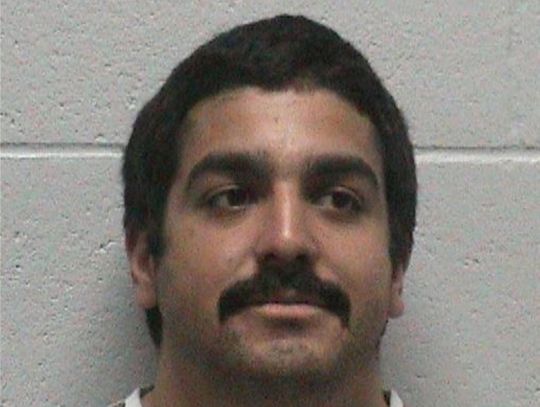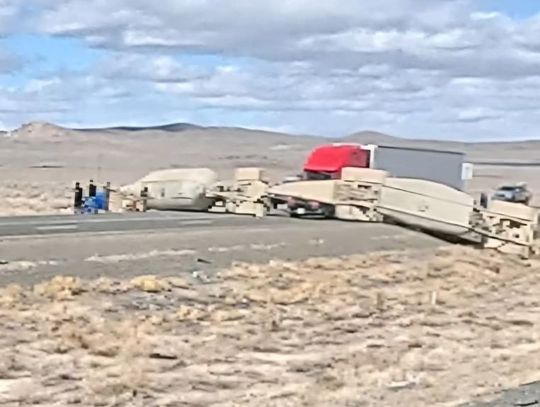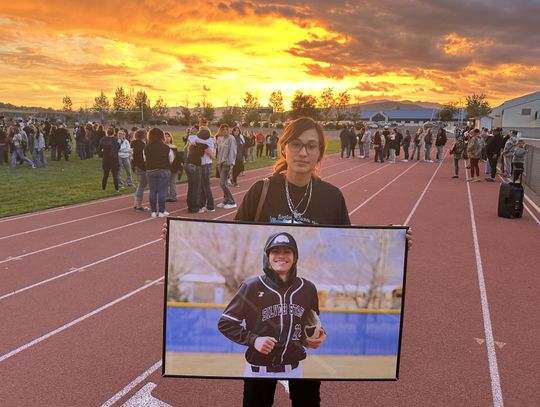While law enforcement officers everywhere in the United States are tasked with handling a wide range of responsibilities, that’s even more true in a small rural agency such as the Lyon County Sheriff’s Office.
That means that once a potential candidate is thoroughly vetted and sent to the Nevada Peace Officer Standards and Training Academy and is assigned to patrol, that deputy undergoes several types of rigorous training each year.
While law enforcement officers are expected to be proficient in everything from community engagement to potentially deadly confrontations, officers in large rural departments are often assigned to specialized beats. While LCSO does have specialized units such as investigations or SWAT, deputies in Lyon County and other small departments must be prepared to handle any type of call.
“You take a Reno PD street patrolman, and you compare it to a deputy, say Lyon County,” Sheriff Brad Pope said. “Now that Reno PD personnel respond to a call, secure the scene and then a specialized unit comes in and handles it, whether it's a domestic or homicide or something like that. You look at our street deputies here in Lyon County, and they handle all that. So, our deputies are very well-rounded and very well-versed in criminal law. and it does it does give them a bigger workload, but it gives him an advantage, too. They're connected to the street crime and a little bit more connected to the community.”
While Pope said handling everything from serving civil papers to solving homicide and everything in between is part of what's appealing to people that get into law enforcement, it also means that they must constantly be up to date in the latest standards, tactics and procedures.
“We have mandatory yearly training, plus we have range training, our annual training with defensive tactics, use of force, what we feel is appropriate for the area, our range training, our building searches, and train those guys so they're ready to go when that time comes,” Pope said.
Chief Deputy Mitch Brantingham said Lyon County deputies conduct range training that consists of scenario-based training four times a year. SWAT training is two days a month.
“That's a 24-hour block of training every month,” Brantingham said. “They get together and work on tactics and use of force skills and de-escalation skills, major scenario training. They work with the negotiations team that we have internally in the agency that works on de-escalation and community relations.”
But he said that’s only a portion of the training LCSO provides. While POST requires K-9 deputies to train 16 hours a month, Brantingham said LCSO conducts 24 hours a month of training.
“And then we have a pretty healthy training budget as an agency, and we send deputies all over the country to get training and seek new information, both in use of force and defensive tactics,” Brantingham said. “We just sent a couple guys here recently to a national defensive tactics and de-escalation school, where they got updated on the current trends and current techniques that are used for those things.”
That also includes training in Armament Systems and Procedures (ASP) such as tasers, and Oleoresin Capsicum (OC), commonly known as pepper spray.
In addition, a law passed a few years ago requires 12 hours of training in things like de-escalation tactics, racial bias and mental health. Pope said deputies also receive specialized investigation training such as burglary investigation, interviewing, interrogation and interacting with mentally ill persons. Most of that training is proficiency based rather than specified time.
Brantingham said he and Pope brief on a weekly basis about things going on in the community and within the sheriff’s office.
“And then what kind of training can we apply to those situations that target that and make sure that we're staying up to date and we're not inbreeding training into the agency, where we have the same guy that's been teaching this course to the agency for 20 years and the rest of the country has passed us by or the best practice has passed us by,” Brantingham said.
Pope said the Juvenile Probation Office recently conducted training for deputies about juvenile law, and the District Attorney’s Office will come in and talk about subjects such as search and seizure case law.
LCSO will occasionally bring in instructors to conduct training, but whenever possible, Brantingham said they prefer to send a single deputy to become a certified instructor.
“Can somebody internal go out, receive the training and become a certified instructor and then bring that back and train the other 85 members of the agency in that field? That's obviously our preference,” he said. “That's really just trying to be good stewards as taxpayer dollars that are coming into the county.”
The county also has a reimbursement program for those deputies who go out on their own and get a degree, as long as it’s in something specific to law enforcement such as criminal justice, political science or sociology.
Pope said one of his goals as sheriff is to eventually build a centrally located training center in Silver Springs. His idea is for a large steel building that could house SWAT equipment plus have a full classroom and a full-size training room. LCSO has applied for congressional grants for it and was denied the past two years.
“We priced it out as about $990,000,” he said. “Now, a lot of that depends on the budget and the money coming into the county, so it may be realistic, it may not be.”
.jpg)









Comment
Comments